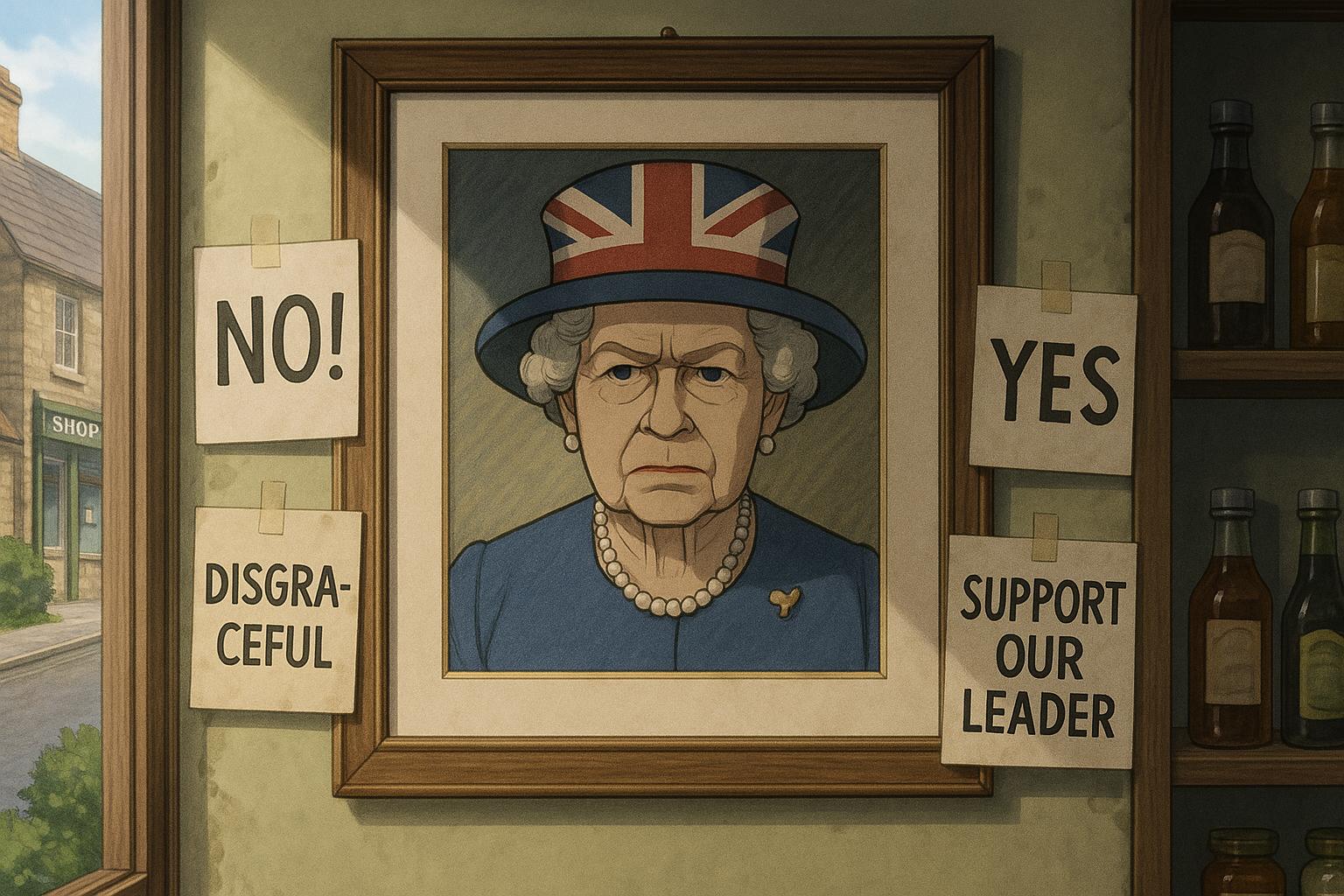In a small village shop in Cleobury Mortimer, Shropshire, a portrait of Enoch Powell, alongside an excerpt from his divisive 1968 "Rivers of Blood" speech, has sparked considerable controversy and prompted an investigation by police. Mumfords, an ironmonger owned by Elizabeth Griffiths, showcased the framed picture to draw attention to what she described as a need for "strong assertive leadership during tough political times." However, the display has been labelled a "hate incident" by West Mercia Police following a report regarding its offensive content. This reflects the continuing polarisation surrounding Powell’s legacy, particularly as his speech epitomised a sharp critique of immigration policies that has echoed through the decades.
Enoch Powell's "Rivers of Blood" speech remains a cultural flashpoint in British political discourse. Delivered to Conservative Party members in Birmingham, Powell warned that unchecked immigration would leave white British people feeling like "strangers in their own country." His remarks ignited widespread outrage, leading to his dismissal from the Conservative front bench and initiating a national political firestorm. The legacy of this speech has been contentious, often shaping the narratives surrounding immigration and national identity within the UK.
In recent weeks, the rhetoric surrounding immigration has once again resurfaced in British politics. Sir Keir Starmer, leader of the Labour Party, drew criticism when he echoed phrases reminiscent of Powell's speech, warning that the UK was becoming an "island of strangers." This proclamation aimed to underscore Labour’s commitment to reducing immigration levels. Clive Lewis, the MP for Norwich South, voiced his disapproval, emphasising that such language risks alienating communities and driving people away from the nation.
Griffiths has stated that the portrait has been well-received by customers since it was displayed in February, suggesting that her intentions were rooted in promoting a dialogue about leadership rather than an endorsement of Powell's contentious views. She also noted that the display features other historical figures, including Winston Churchill and St. Francis of Assisi, framing it within a broader context of leadership representation. Nevertheless, West Mercia Police have pledged to investigate further into the incident, a decision that reveals how sensitive the public remains regarding Powell's legacy and the themes of race and identity in political discussions.
The backlash against Powell and his ideas is not a novel development. Calls for a blue plaque commemorating Powell in Wolverhampton have prompted significant opposition from local leaders, including Clive Gregory, the Bishop of Wolverhampton. Gregory articulated concerns that such recognition would be construed as honouring Powell's racist ideologies. This illustrates the ongoing debate in the UK about how to commemorate historical figures with legacies rooted in controversy and polarising commentary.
Half a century after Powell’s influential speech, the UK finds itself still grappling with the implications of his rhetoric on contemporary political dynamics. The intense reactions to both the recent shop display and proposals to commemorate Powell reveal a society divided, where discussions on immigration and national identity continue to provoke heated debate. As the political landscape evolves, the nuances surrounding Powell’s role in British history serve as a reminder of the potent intersection between leadership, rhetoric, and societal values.
This latest incident in Cleobury Mortimer reflects larger historical tensions and invites critical reflection on how the narratives of the past inform the realities of the present, particularly in a nation still wrestling with its identity in a globally interconnected world.
Reference Map
- Paragraph 1: [1], [2]
- Paragraph 2: [5]
- Paragraph 3: [4]
- Paragraph 4: [3]
- Paragraph 5: [7]
- Paragraph 6: [6]
Source: Noah Wire Services
